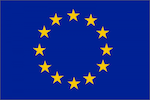Today Female Genital Mutilation/Cutting (FGM/C) is a reality in Europe, where is estimated that 500,000 women have already been directly affected, and where around 180,000 are at risk each year. Around the world the latest numbers point out 200 million women affected. The fact that this is a practice related to migrant communities poses several challenges to institutional responses – even more since the criminalization of FGM in Portugal in 2015.
Given the difficulty of training professionals in the field, this project provides training courses to future professionals in the areas of Education, Social Work, Psychology, Anthropology, Law, Health (Nursing, Obstetrics) and Communication. Due to the complexity of this subject and to the need to acquire intercultural skills, a Multisectoral Training Guide with general and specific contents was created to support these trainings.
In addition to the training activities, this project also organizes thematic International Seminars, in which the inherent complexity of responses to FGM/C is addressed. This Seminar at ISCTE-IUL aims to gather experts from various African countries (Guinea-Bissau, Senegal, Guinea Conakry and Mauritania) and other European experts that work on these cross-cutting contexts and other related themes. Our goal is to link these contributions with the exchange of experiences and also with a reflection on the institutional responses in Portugal, promoting a debate where one can portray the reality of FGM.
Co-funded by the Rights, Equality & Citizenship Programme of the European Union


